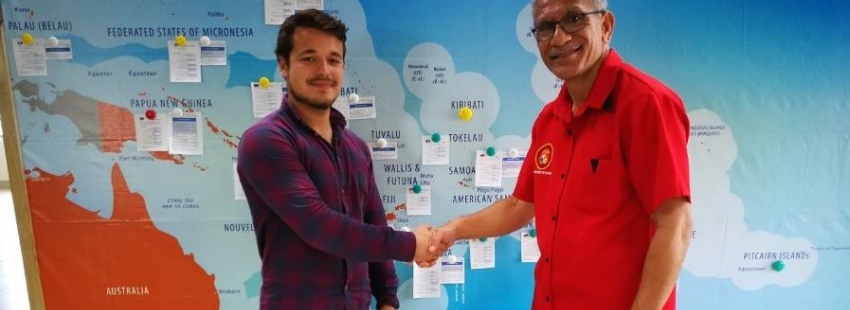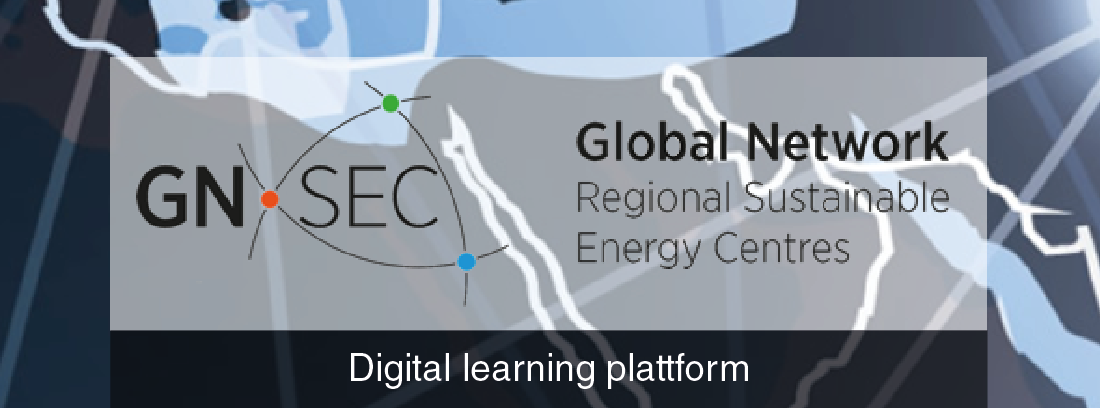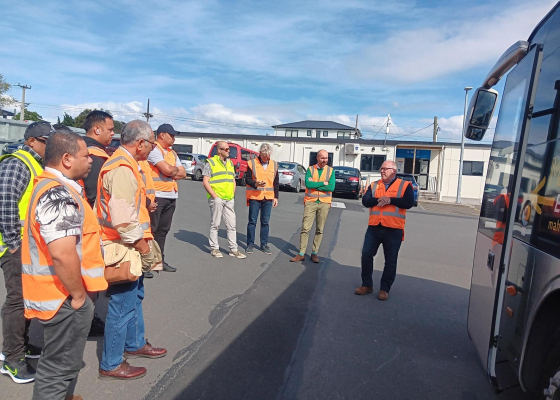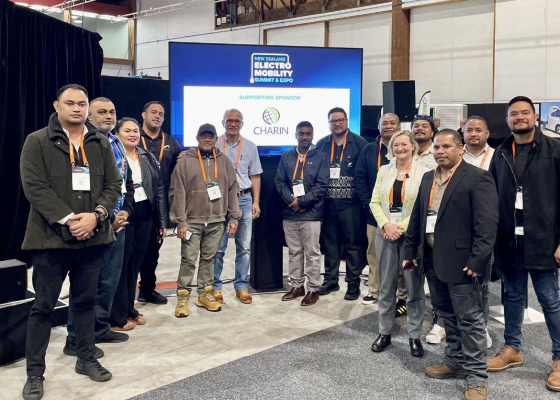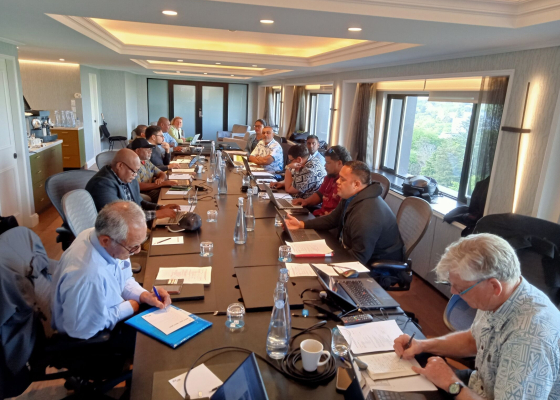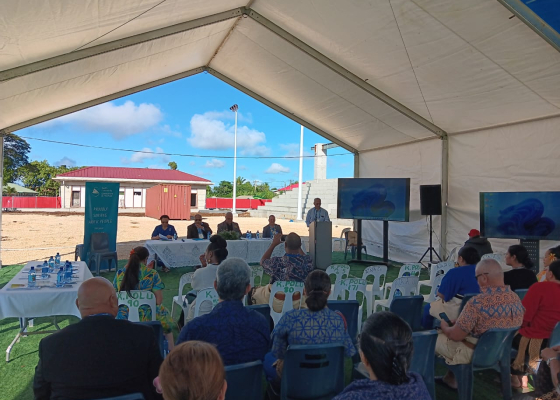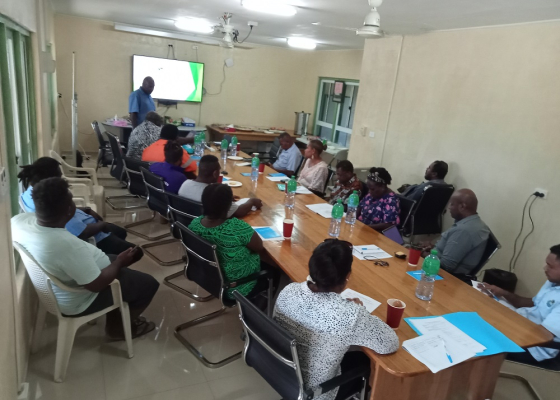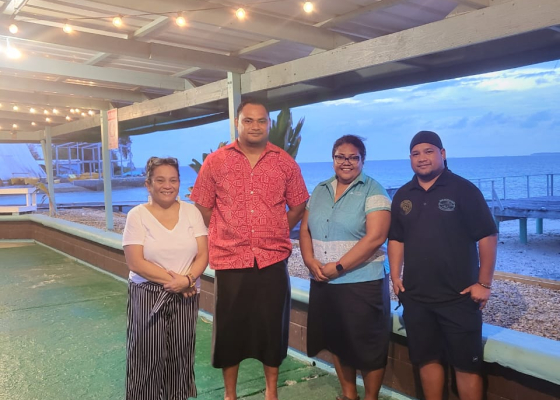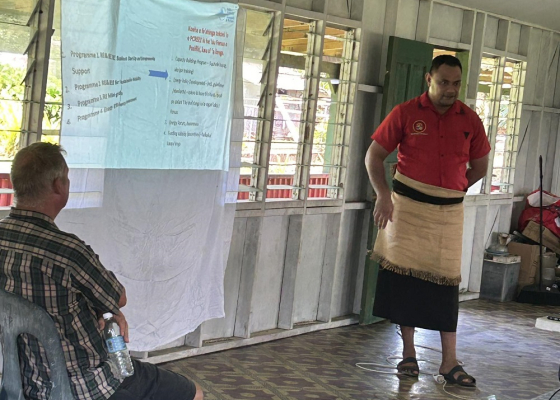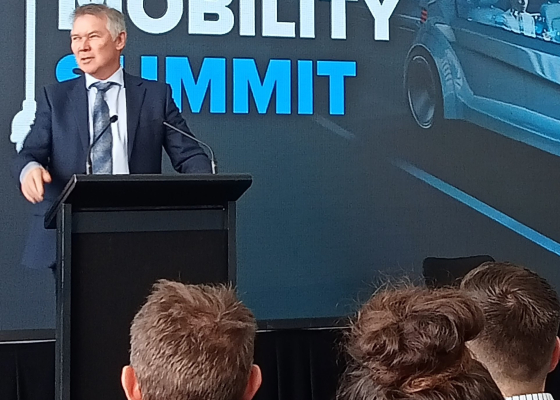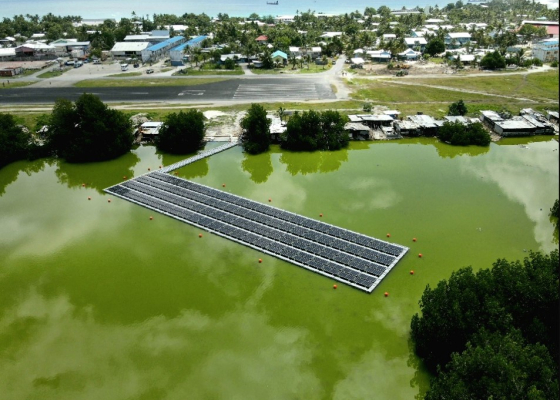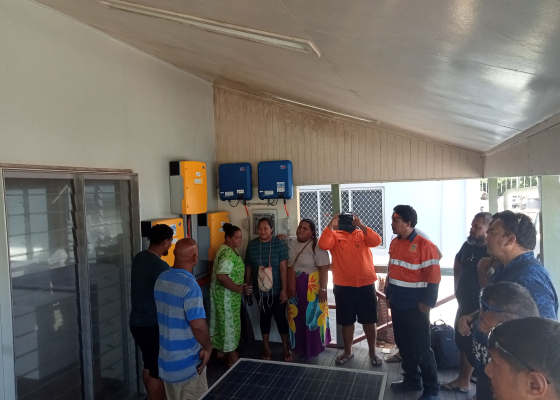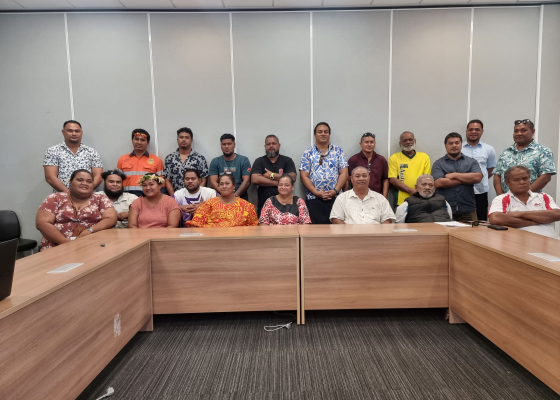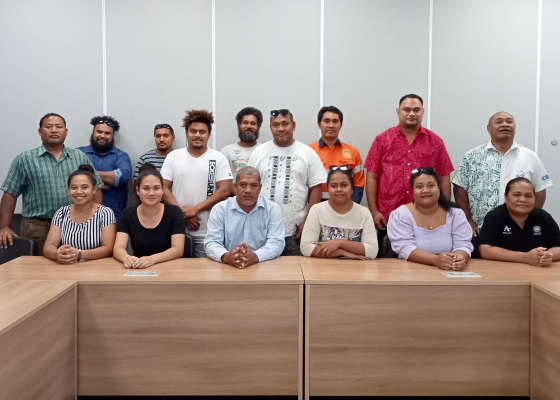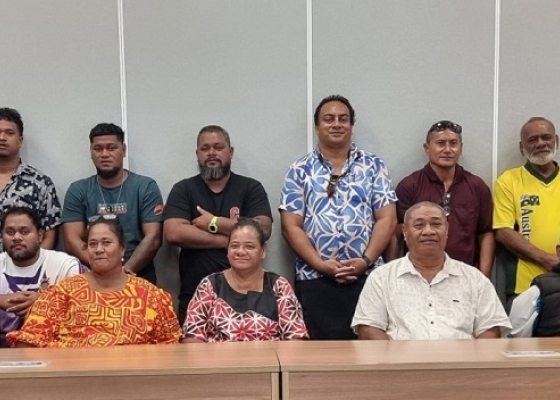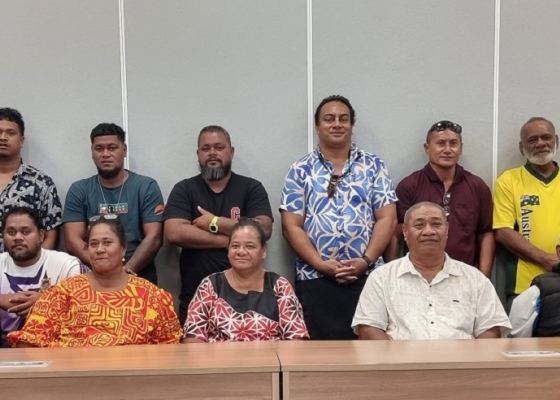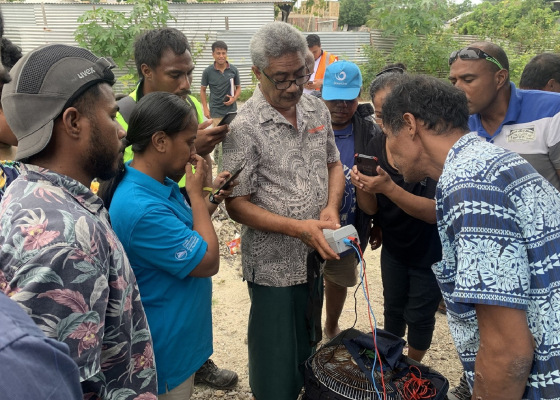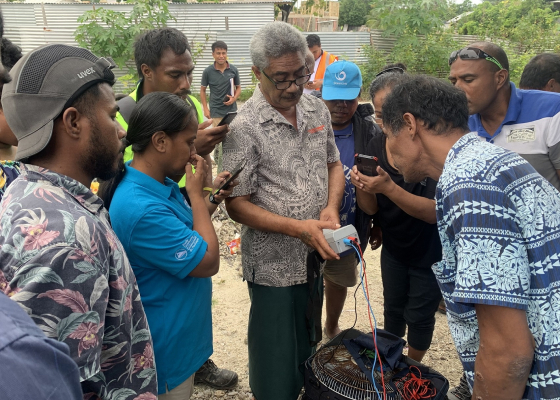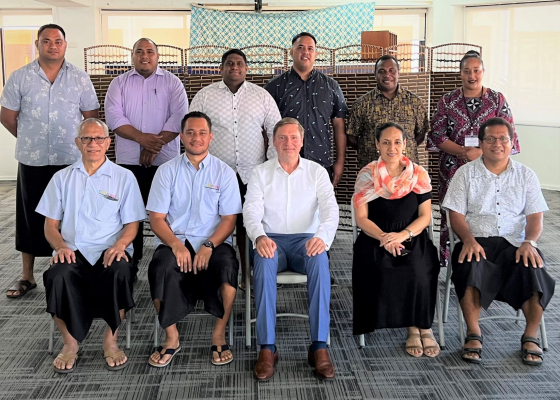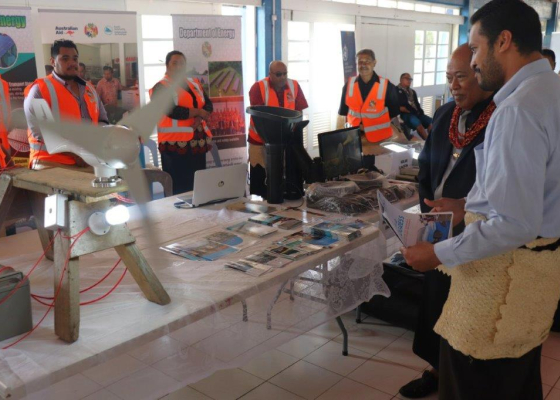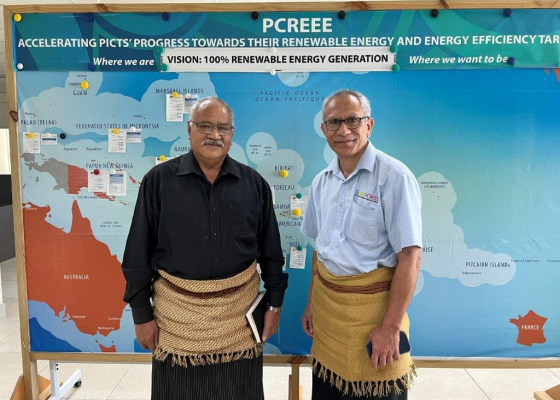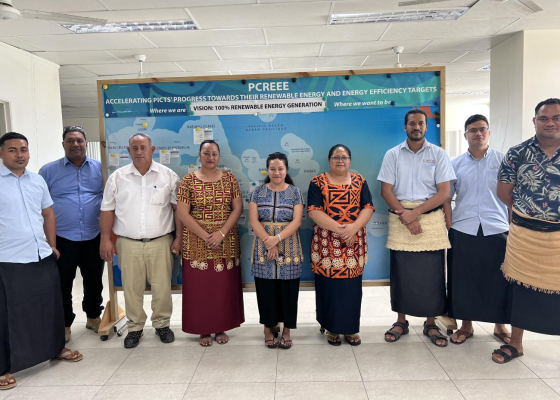Completing a Master’s Programme: A graduate’s reflection
Reviewing my master’s research about the potential of solar energy in the Kingdom of Tonga, hosted by PCREEE in 2019.
Before I came to the “Kingdom of Tonga”, the only thing I knew about this magical sounding Island Nation was that it is located somewhere in the South Pacific. Far away from Vienna in Austria, the centre of my life at that time. I was studying “Natural Ressources Management and Ecological Engineering” and as a part of my master, I was about to attend an exchange programme at Lincoln University in New Zealand in 2019.
The topic of solar power always played an important role in my life. In 2011 just after high school, I made my first profound experience with renewable energies. I attended a german voluntary programme and had the opportunity to live one year in Tanzania, Africa. I remember how impressive it was to see the potential of photovoltaic supplying people across the rural areas with electricity.
During my master’s programme, I started a student position at the solar company Swimsol, which is the developer of the first floating maritime solar platform. During my time there, I learned a lot about solar energy for the particular target group of island nations. I decided to combine my knowledge from Swimsol, my studies and the geographic proximity to New Zealand, to conduct a field study at the Pacific Island Nations to analyse their solar energy potential. Especially because of the Pacific Centre for Renewable Energies and Energy Efficiency (PCREEE), the Kingdom of Tonga offered the perfect Infrastructure for my master’s research.
The PCREEE has been supportive from the first moment on. I was offered a place in the office and furthermore to share a house with a colleague from Vanuatu. The PCREEE hosted me for a total period of two months and I became very well integrated into the team. Mr Solomone Fifita, the Manager of PCREEE, allowed me to use all the resources and contacts of the renewable energy institution for the purpose of my research. Being able to work in the name of the institution has been a door opener to many public and private institutions and significantly impacted my research outcome. I visited Tonga’s branch of the World Bank, Department of Foreign Affairs and Trade of Australia (DFAT and New Zealand (MFAT, as well as the Electricity Commission, Tonga Power Limited (TPL) and several more public institutions.
As a highlight of the research time, I was invited to join the PCREEE team on a mission to accompany the annual agriculture show across the four island groups of the country. The two-week journey enabled me to get an impression of the up-to-date solar system application in the country. The most common applications of solar generation devices were documented for the thesis, shown in the picture below. Also, it was possible to directly get in touch with Hotels and Resorts as representatives of the private sector, to conduct interviews about their relationship to solar energy. The outcome of an applied questionnaire among those institutions helped to better understand the consumer perspective and their interplay with the local energy provider TPL.
Figure 1: Off and On Grid Solar system types applied in the Kingdom of Tonga, pictures own representation.
The research's key outcome has been the identification of the general solar energy potential for the Tongan private sector and the subsequent arising opportunities by creating incentives for these technologies at the political level. At the time of research, Tonga was on its way to moving its electrical energy supply to a 50% renewable production. Most renewable power plants were either funded by development aid or on a Power Purchase Agreement (PPA) basis. The potential for the people of Tonga to benefit individually from these technologies is theoretically enormous. The kingdom is characterised by high solar irradiation and very expensive electricity prices due to the strong dependence on fossil fuel imports. PV system payoff times between five to six years are possible, depending on the (tax) regulation on the hardware imports.
Figure 2: Colleagues of PCREEE and Energy Department at the agicultural show in Niuatoputapu, own representation
In the thesis, two case studies were analysed to give a step-by-step example of the scope of a PV system application for the private sector. Further, three main “Lock-Ins” have been identified, which could support the goal of including the people of Tonga in future energy developments. 1) Infrastructural & Technological Lock-Ins. 2) Institutional & Political Lock-Ins. 3) Social & Behavioural Lock-Ins.
The thesis intends to contribute to elaborate pathways, which can help pacific countries like the Kingdom of Tonga to become more resilient to climate change and be able to actively mitigate its effects. Even if the contribution of the SIDS to climate change is not comparable to industrial nations, raising their share of renewables is a powerful message and strengthening their position in future negotiations. Hence, regulatory incentives for the private sector to invest in solar energy will be a possible pathway for future energy targets. The Tongan Energy Road Map (TERM) shows that the Government of Tonga is increasingly aware of the potential to supply a part of Tonga’s energy needs from renewables in a reliable, affordable and more secure manner.
Besides swimming with Humpback whales, which is probably one of the most amazing things I have done in my life, the beautiful island nation Kingdom of Tonga has much more to offer. Especially the people are heartwarming and their culture is very welcoming. For me, it felt like a family working together with my colleagues and I want to thank Mr Solomone Fifita and the PCREEE staff for having me.
Disclaimer: If you are interested in further getting to know more about the potential of renewables in the Kingdom of Tonga, feel free to check out my thesis which was published in 2021.
Link: https://zidapps.boku.ac.at/abstracts/download.php?dataset_id=20017&property_id=107
Sincerely yours,
Nicolas Meier
Upcoming Events
-
02/03/2026 to 02/06/2026
-
03/02/2026 to 03/03/2026

